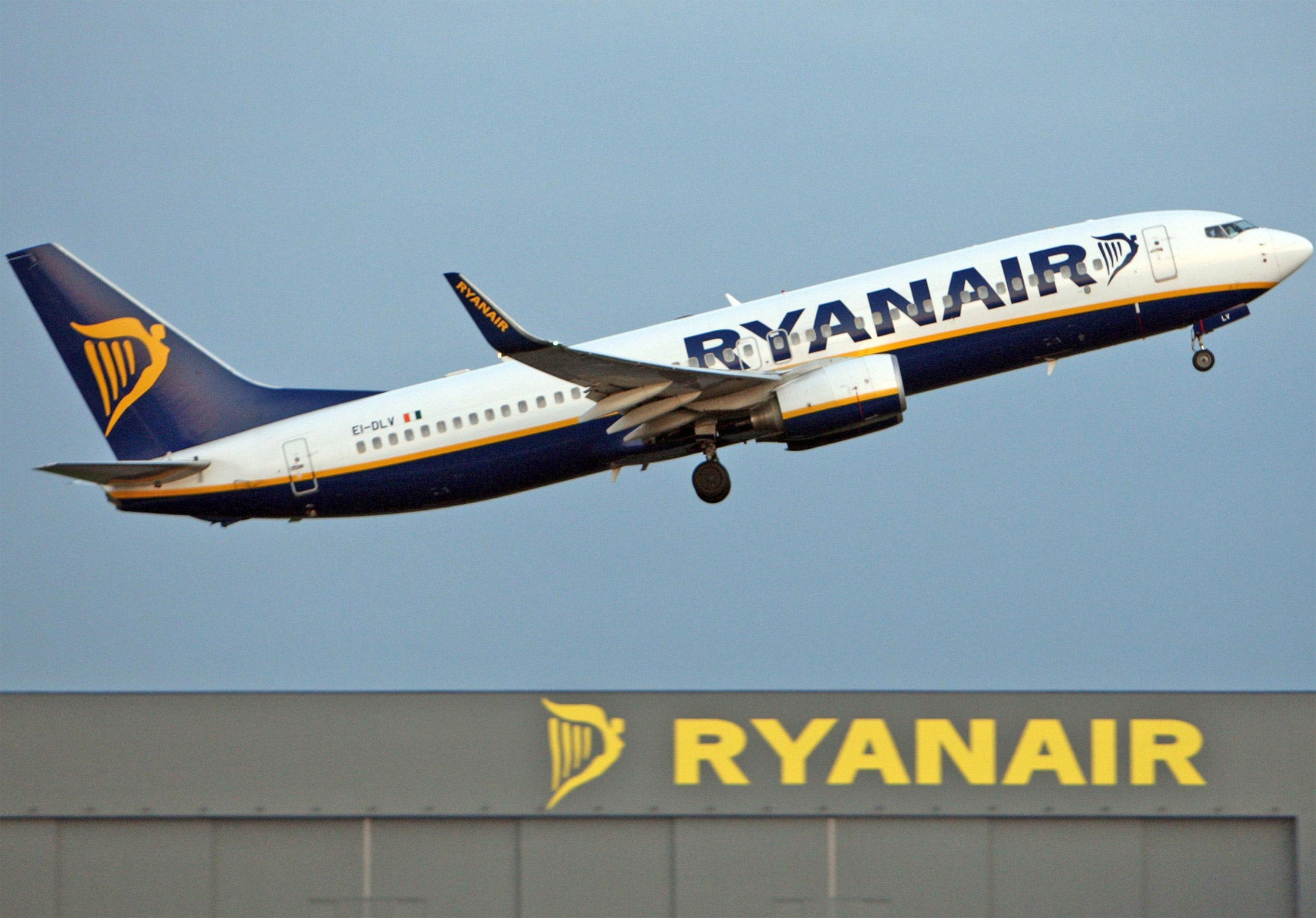Exclusive: Safety warning as budget airlines such as Ryanair cut fuel levels for flights
Debate sparked as Ryanair insists fuel levels set by pilots are safe

Airlines such as Ryanair could be putting passengers at risk by restricting the amount of fuel they carry in an attempt to cut costs, aviation authorities have warned. In a strongly worded report Spanish safety investigators said that “market competition” was forcing airlines to carry less emergency fuel to improve competitiveness.
[Please see clairifying item, 9 August 2013]
And they warned that air traffic controllers might not be able to cope if, due to bad weather or a closed a runway, they were faced with multiple planes trying to land with minimum fuel levels on board.
The recently released Spanish report into an incident in which a Ryanair plane landed at Valencia airport in 2010 carrying less than the legally required amount of fuel required as a reserve on take-off, comes as internal Ryanair memos have revealed the tough line taken with pilots. One memo warns pilots that any attempt to routinely take on more fuel than is operationally required is a “zero tolerance” issue.
“The routine carriage of 300kgs of extra fuel is discouraged,” Ryanair’s base captain wrote. “If we all carry 300kgs of (extra) fuel on each sector we burn an extra 7.5kgs of fuel unnecessarily. That is 19,500kgs wasted across the fleet daily… Simple maths works out that costs the company $5m each year.”
The memo has since been disowned by Ryanair management. But another memo to Stansted pilots almost two years later stated: “All of you are aware of our on-going efficiency drive particularly regarding fuel… There remain a small number of commanders who appear to have difficulty with operating with [planned fuel requirements] plus 300kgs or less.”
The official policy of Ryanair is that its captains can take on up to 300kgs more than the amount set by the official flight plan – and an additional amount only if they provide a reason for doing so.
But the official report into the Ryanair Flight RY9ZC on-route from Stansted to Alicante in Spain with 170 passengers on board in May 2010 reveals regulators’ concerns about the policy. It details how the 27-year-old Ryanair captain decided not to take on any additional fuel other than that calculated in his flight plan.
In fact, due to better than expected weather conditions and a lower than estimated take-off weight, the plane’s fuel consumption was 477kg less than had been predicted. But as the plane approached the airport it faced unexpectedly strong winds and was forced abandon two attempts to land.
At that point the captain, and his 22-year-old co-pilot, made a decision to divert to Valencia. But while approaching the airport, the crew had to declare a Mayday.
The plane landed safely but a measurement of fuel after landing showed it had just 956kg remaining, 183kg below the final fuel reserve of 1,139kg required as part of its total fuel on take off. If the plane had had predicted conditions on route it would have had only 15 minutes of flying time.
In its analysis of the incident, the Spanish Civil Aviation Accident and Incident Investigation Commission said it was concerned that if more airlines adopted Ryanair’s fuel strategy then safety could be compromised.
The report concluded that the cause of the incident was the crew’s “inadequate decision-making process”.
A spokesman for Ryanair said the airline was happy with the instructions it gave it pilots on fuel levels and that the Spanish report had “mis-described” Ryanair’s fuel policy and said it was the “subject of formal complaints by both Ryanair and the Irish Aviation Authority.
“The EU’s fuel requirements work fine for all EU airlines,” they said. “If pilots want fuel over and above our prescribed extra fuel, they take it.”
Cost savings: Ryanair contracts
Pilots contracts
Most Ryanair pilots are on contracts that do not guarantee a specific number of hours a month and they are only paid for the hours they fly. Critics say this may put pressure on captains to fly even if they are unwell.
Cabin crew
Some cabin crew are forced to take up to three months’ unpaid leave a year. They have to pay for their uniforms and training.
Oliver Wright
Subscribe to Independent Premium to bookmark this article
Want to bookmark your favourite articles and stories to read or reference later? Start your Independent Premium subscription today.

Join our commenting forum
Join thought-provoking conversations, follow other Independent readers and see their replies